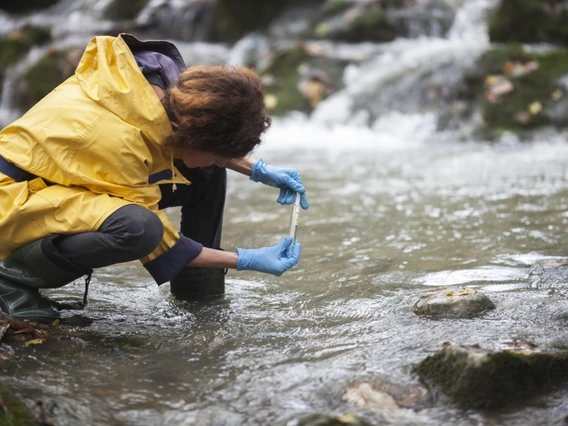Undergraduate Major Programs

Agricultural Technology Management and Education
Leadership and Communication Emphasis
Prepare to lead the next wave of agriculture and natural resource innovation and to become a leader, community change agent, or ambassador or advocate for the agriculture industry while studying science, technical agriculture, and principles of entrepreneurial leadership while building communication, management, and problem-solving skills.

Applied Physics
This interdisciplinary program serves as a launchpad for careers solving real-world problems in the private sector or for advanced study in applications such as engineering and medicine. This major combines a broad interest in physics with practical career skills, networking opportunities, and an Engineering Senior Design Project.

Economics
Hone your analytical skills and position you for a variety of career paths including business, manufacturing, labor, agriculture, natural resources ,and government. Students who wish to earn their B.A. in Economics must first enroll in the Pre-Economics major and complete a minor in a chosen area of interest and four semesters of a foreign language.

Environmental and Water Resource Economics
Prepare to become a responsible leader in the management of natural resources through coursework in quantitative methods, economics, politics and communication. You'll learn how to formulate policies for responsibly managing natural resources while gaining skills in business management, human resources, and food/fiber production.

Environmental Science
Leadership, Sustainability, and Communication Emphasis
Immerse yourself in environmental laws, regulations and policies to discover how to be part of a successful response to pollution, natural resource management and climate change. Learn to predict how landscapes change under the effects of climate, geology and land use, and what actionable steps are needed to create a sustainable future.

Environmental Studies
This major sheds light on the human dimensions of environmental issues. Explore techniques for addressing pressing social science issues and study physical science techniques as you learn about water, land use, food, energy, the built environment and climate from a critical perspective of policy and social science.

Food Studies
Gain knowledge to address pressing social and environmental problems in local and global food systems. An interdisciplinary approach that examines how food is connected to culture, society, policy, and the environment prepares students for careers any number of food-related fields, including education, public policy, entrepreneurship, and community development.

Geography
This interdisciplinary degree combines physical and social sciences; you may focus on specific world landscapes and cultures or on areas such as urban, political, economic or cultural geography, or on human-environment relations. Learn to analyze data and policy in order to address and research critical questions about the world you live in.

Geosciences
Earth, Ocean, and Climate Emphasis
Develop an understanding of Earth's climate—past, present, and future—and the important connections between the solid Earth, oceans, and atmosphere, and how they influence modern climate dynamics. Graduates pursue careers in environmental geology and scientific research in fields such as oceanography, climate science, surficial processes, paleoclimate, paleoecology and more.

Law
As the first Bachelor of Arts in Law in the country, this degree is designed to meet the high demand for professionals with legal training across a wide spectrum of careers. Students learn key foundational aspects of law, such as criminal and civil procedure, contracts and torts, while specialized internships in real-world environments allow them to home in on areas of interest.
Pagination
Environmental Themes
Career Fields












